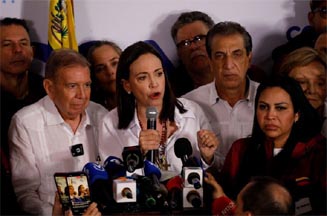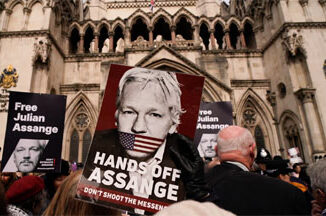PRISTINA (TIP): Kosovo goes to the polls February 6 in a parliamentary election expected to be a key test for Prime Minister Albin Kurti after his governing party won in a landslide four years ago.
Eligible voters, including those of the diaspora, will cast ballots to elect 120 lawmakers among 26 political groupings and one independent candidate in a vote held from 7 a.m. until 7 p.m. The Serb minority has 10 secured seats while 10 more are for other minorities.
This is the first time since independence in 2008 that Kosovo’s parliament has completed a full four-year mandate. It is the ninth parliamentary vote in Kosovo since the end of the 1998-1999 war between Serbian government forces and ethnic Albanian separatists that pushed Serbian forces out following a 78-day NATO air campaign. Serbia does not recognize Kosovo’s independence, proclaimed in 2008.
Kurti’s left-wing Vetevendosje! or Self-Determination Movement Party is seen as the front-runner but is not expected to win the necessary majority to govern alone, leaving open the possibility the other two contenders join ranks if he fails to form a Cabinet.
“On Feb. 9 we vote for the future,” said Kurti, “We vote for Vetevendosje!”
The other contenders are the Democratic Party of Kosovo, or PDK, whose main leaders are at The Hague tribunal accused of war crimes, and the Democratic League of Kosovo, or LDK, the oldest party in the country that lost much of its support after the death in 2006 of its leader, Ibrahim Rugova.
During the election campaign the parties made big-ticket pledges to increase public salaries and pensions, improve education and health services, and fight poverty. However, they did not explain where the money would come from, nor how they would attract more foreign investment.
“We have a plan for each city, each family, each persons,” said Bedri Hamza of the PDK.
“We have an alternative to guarantee a better life in Kosovo,” said Lumir Abdixhiku of the LDK.
Kosovo, with a population of 1.6 million, is one of the poorest countries in Europe with an annual gross domestic product of less than 6,000 Euros per person.
Kosovo is also suffering after Washington imposed a 90-day freeze on funding for different projects through the U.S. Agency for International Development, which has been key in promoting the country’s growth. The U.S. has invested $2 billion in Kosovo since 1999, including investments of over $1 billion from USAID.
The vote will determine who will lead the Kosovo side in stalled normalization talks with neighboring Serbia, facilitated by the European Union to get both sides closer to joining the bloc. (AP)
© The Indian Panorama





Be the first to comment